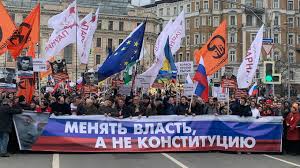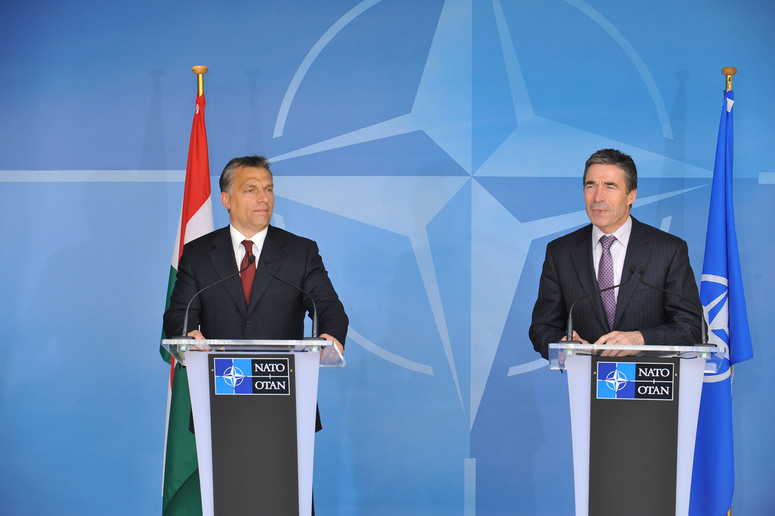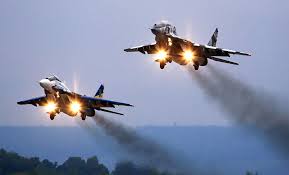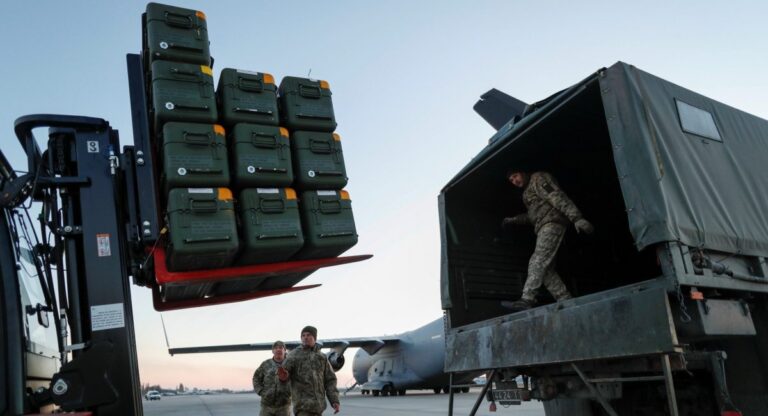The increasing risks of further escalation caused by Russian territorial expansion and imperial policy revival require Western countries to put efforts to create conditions to prevent the Kremlin from conducting the next military and hybrid operations in Ukraine.
The Latvian security services have warned that as the confrontation between Russia and Western countries intensifies, the risk of Russia’s aggressive operations against the Baltic States, mainly Latvia, will increase as well.
According to the intelligence assessments after the annexation of Crimea in 2014 the next and easiest target of the Kremlin might be Latvia and the region of Latgale.
The recent and updated National Security Concept adopted by the Saeima of Latvia also confirms these assessments.
The concept notes that Russian policy includes preparations for a full-scale war with NATO. The Latvian security services stressed that Russia is not merely outlining and developing military attack scenarios, but also planning how to weaken its opponent on all fronts and at every stage of hybrid war.
The Latvian intelligence expects that the espionage activity against Western countries, including Latvia, will intensify.
Russian propagandists and a number of politicians regularly call for attacks on NATO countries. In fact, the West-confrontation policy is existential for Russia and Moscow will keep following it even if Vladimir Putin is removed from power. The confrontation-focused policy is an inherent part of any regime in the Kremlin since it greenlights to:
1. Turn public attention from criticism of the government’s failures to overcome economic and infrastructural backwardness; corruption and ineffective state governance, into ‘hostile’ policy of foreign states.
2. Unite the population around the state leader to fight against foreign enemies.
3. Manipulate public consciousness by planting pride for the territorial expansion of the country and sweeping under the rug low living standards and personal income, as well as infrastructure economy problems.
Thus, the Russian mentality specifics are used by the government to strengthen its positions, and minimize the risks of protest and opposition movements within the country.

More on this story: Russia’s fear has a quick ear
Today, the Kremlin’s further military expansionism is blocked by the war in Ukraine. However, we are convinced that the bet on negotiation process in this war, and a possible freeze of the war, will sharply increase the risks of a new war in Europe with the Kremlin’s involvement.
The hypothetical achievement of the Kremlin’s goals in Ukraine (territorial) does not close the door to the further expansionism. For instance, the Kremlin’s next goal could be turning the Baltic Sea into Russia’s internal waters and creating direct land connections with the Kaliningrad region (Koenigsberg). At the same time, a new conflict will bring more success to Russia due to combat experience in Ukraine, as well test and use of new tactics and weapons. A new confrontation will inevitably get other NATO countries involved.
According to our estimates, more than half of the Alliance members are not ready to participate in such a conflict, either resourcefully, or politically, which pose threats to the territorial integrity of some countries. We think that Moscow is convinced that any attack on a NATO countries will not allow reaching consensus on invoking Article 5 of the Washington Treaty. Establishing influence on some countries, such as Hungary, and IPSO with nuclear weapons threats conduct since 2014 have formed this belief.

Such lack of preparedness for war is a consequence of multi-year economic austerity in matters of rearmament and maintaining military viability to armed conflicts in the region, and failure to comply with Alliance standards for defense sector financing. Numerous malfunctions and deficit of equipment and ammunition given to Ukraine as military assistance prove this fact. It means that in case of the outbreak of hostilities on the territory of at least one of the NATO countries with an intensity of 30-40% of the intensity of the equipment and ammunition use in Ukraine, the Alliance will be unable to continue the hostilities for more than 3 months.
Thus, depletion of Russia’s military potential and military defeat of Moscow on the territory of Ukraine can prevent NATO countries from getting involved in a new war in Europe. In case of success this goal will save the United States, Western, Central and Eastern Europe from infrastructural and human losses, and will provide technological defense enterprises with orders and will increase employment. Obviously, the necessity of technological breakthrough achieved during the Cold War is increasing.Economically Russia cannot compete militarily with the West.

More on this story: NATO decline risk amid the war in Ukraine
Post Author
Author
-

Robert Lansing Institute Director General, former DRM
View all posts
imagery analyst, Paris-based analyst in intelligence




